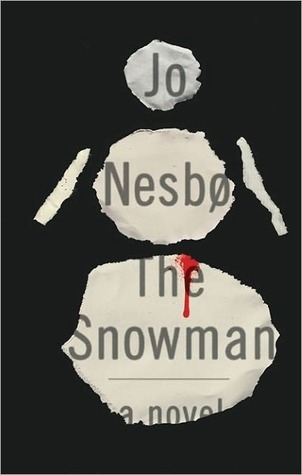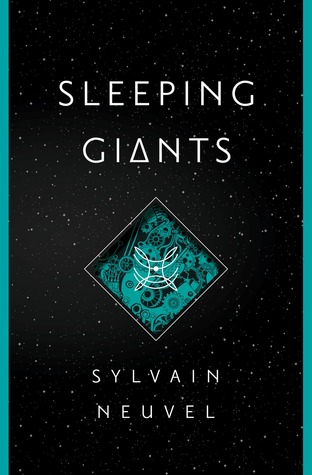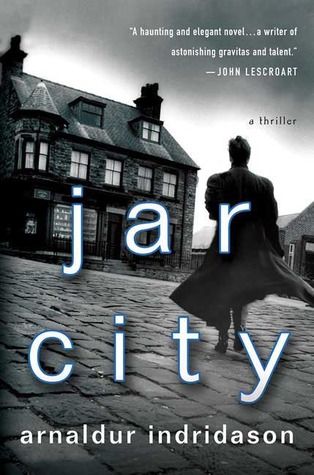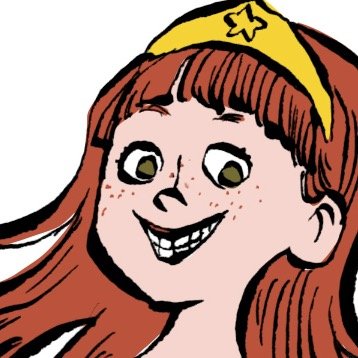So if you've been reading this blog for at least the past month, you will know that I'm living in Denmark for the semester. It's awesome! It's adventurous! It's cold! (But I'm a Chicagoan I can handle this)
Because I am practically Scandinavian now, obviously, I've been reading a lot of Scandinavian fiction. (The English translations of course - I'm not THAT Scandinavian yet.) And because Scandinavia has some of the lowest crime rates in the world, of course their authors like to write about DEATH AND MURDER AND GORE. You know, to bring in some excitement.
Also, have you seen Norwegian forests? Icelandic mountains? Danish foggy roads? Those places are just ASKING to be crime scenes in novels.
But yes, Scandinavia is known for it's crime fiction for a reason. They have some of the best crime novels and TV shows in the world, and I'm taking a class where we read the best. So I thought for today's mini-reviews I'd share three that I've read so far. (And down at the bottom are some bonus TV-show recommendations because I want to get you addicted.)
(Warning, this is a long post. But I'm really into this stuff now.)
The Snowman by Jo Nesbo - Norwegian
 Oslo in November. The first snow of the season has fallen. A boy named Jonas wakes in the night to find his mother gone. Out his window, in the cold moonlight, he sees the snowman that inexplicably appeared in the yard earlier in the day. Around its neck is his mother’s pink scarf.
Oslo in November. The first snow of the season has fallen. A boy named Jonas wakes in the night to find his mother gone. Out his window, in the cold moonlight, he sees the snowman that inexplicably appeared in the yard earlier in the day. Around its neck is his mother’s pink scarf.
Hole suspects a link between a menacing letter he’s received and the disappearance of Jonas’s mother—and of perhaps a dozen other women, all of whom went missing on the day of a first snowfall. As his investigation deepens, something else emerges: he is becoming a pawn in an increasingly terrifying game whose rules are devised—and constantly revised—by the killer.
This one was the first Scandinavian novel I ever read, and whoa was it a good introduction. Let's talk about this magnificent whirlwind of a plot first: it just kept going in so many directions, with so many unanswered questions, and so many red herrings,* but it was never confusing or overwhelming. Masterfully done.
*Red herrings are sadly not a delicious Swedish dish, but instead misleading clues that actually lead to nothing.
When I finished reading it, I was in love, I was sure I would give it at least four stars (not five, because the writing was good but not great - maybe it was a translation issue, but I never like the sharp, constantly short sentences of adult contemporary thrillers). But then we had class discussions, and class discussions, I now realize, can change your opinion of a book a lot.
I pondered the novel beyond it's grabby and fantastic and truly excellently crafted plot, and found: disappointing female characters. It's not that the book was blatantly sexist, just slightly, unobtrusively, dare-I-say normally so. (I wrote an essay on it, so I'm not going to expound here.) Basically, the lady characters that you THOUGHT were going to become epic and strong and good and feminist ended up becoming tropes.
But that totally didn't detract from my enjoyment of the novel. I loved reading it, it was just my post-reading-analysis wasn't as satisfying as it might have been. And I still totally recommend you read it (and according to my Danish host mom, his other novels in the series have the ladies playing a less one-dimentional role, so maybe it was a one-time-thing). So if you want a good eerie Scandinavian read?
The Snowman is a good place to start.
I give it
4.01 snowy stars.
Jar City by Arnaldur Indridason - Icelandic
When a lonely old man is found murdered in his Reykjavík flat, the only clues are a cryptic note left by the killer and a photograph of a young girl’s grave. Inspector Erlendur, who heads the investigation team, discovers that many years ago the victim was accused, though not convicted, of an unsolved crime. Did the old man’s past come back to haunt him?
As the team of detectives reopen this very cold case, Inspector Erlendur uncovers secrets that are much larger than the murder of one old man--secrets that have been carefully guarded by many people for many years.
So if
The Snowman ruled in plot and fell apart with characters,
Jar City ruled with characters, which made up for it's fine, but not 100% gripping plot. It also won with its empathy and understanding towards the plight of women rape survivors having to report the rape to the police, and how they can be dismissed as attention-seeking or confused or hormonal, and just disbelieved in general. You want a feminist male writer? Indridason is your guy. (I also wrote an essay on this, by the way, and my final paper is going to be comparing
Jar City with
The Snowman and their perspectives on the female character. Do you understand now why I adore this class?)
But even though I said the plot didn't wholly grasp my attention, and even though the writing was satisfactory but not fabulous (maybe translation issues again?),
Jar City still had a worthily crafted plot with enough eeriness and intrigue to keep me happy. And the characters made up for what the plot lacked. Here are things you cannot find in this book: (1) Sexy ladies being sexy just because they're ladies. (2) A police department without a super-smart lady in a top investigation position. (3) Misogynists who are not portrayed as anything other than extraordinarily disgusting. Here are things that you can find in this book: (1) A fascinating and eventually satisfying relationship of a father and his adult daughter. (2) A victim who is actually a villain. (3) Minor characters who have full well-developed personalities.
If that is something that appeals to you (which is should), I highly recommend you read this book.
I give it
4.12 stars.
My Soul to Take by Yrsa Sigurdardóttir - Icelandic

A grisly murder is committed at a health resort situated in a recently renovated farmhouse, which turns out to be notorious for being haunted. Attorney Thora Gudmundsdottir is called upon by the owner of the resort - the prime suspect in the case - to represent him. Her investigations uncover some very disturbing occurrences.
This one is my favorite so far, as you can see by the rating. And I think it was because of the writing. Finally, a thriller novel with pretty writing! And it had humor too - lots of snark between our main character Thora and her boyfriend/investigation partner Matthew. Their relationship was so perfect.
She pointed at a little brown mound of dirt close to them. "What's this?" she asked, going to look at it.
"Is there no end to your powers of detection?" said Matthew. "Look, you found some dirt."
I mean, aren't they SO CUTE and the PERFECT DETECTIVE TEAM? I love them.

Really, considering that the ending came as a bit of a shocker (in perhaps a not so good, didn't really see the plausibility of it, way), and that the plot was much tamer than the two books above, perhaps I shouldn't have rated it so highly. But THE WRITING and the ICELANDIC EERINESS and the CONVOLUTED FAMILY HISTORY (incest? child murder? neo-nazis?) made me amp up my rating a bit. Because despite what my class consensus was, I loved this book so much and I want to read more of her stuff.
I give this book
4.53 eerie Iclandic night sky stars.
And now, we move on to...

My professor for Scandinavian Crime Fiction is Danish, and yet she insists that Danish crime novels fall short when compared with other Scandinavian writers. BUT, in terms of crime shows - the Danes are unarguably at the top of the game.
(Also it's lovely when you get to watch TV shows for homework.)
Forbrudelsen (The Killing)
Do you want proof of how good this show is? BBC aired it with English subtitles and it became SO POPULAR in England and the Brits were so proud that they were addicted to a foreign show. It's that good.
The unique things about Danish crime shows is that it's not one case per episode, but one case per season instead. Imagine 20 episodes of the same case! Every episode ends with a cliffhanger, there are so many side stories to explore, and all the characters are fully fleshed out and so real.
Also, Scandinavian equality means super badass female lead. She wears jeans and sweaters and ponytails; never is her appearance discussed in a derogatory way; I think she's gorgeous, but that's never the point. There's romance, but not between her and her co-detective, they both have their separate family lives. If I compared her complexity to that of Sherlock Holmes, it would be a worthy comparison (though she's not really sociopathic - she's just rather tunnel-visioned). Oh, if for nothing else, watch it for her.
(Also, a note: Watch the original, not the US remake which is not as good stay away stay away)
The Bridge
This one is super cool because it is actually half Danish and half Swedish. It involves a body being found on the bridge between Denmark and Sweden - exactly half is in one country, and half is in the other. Who gets the case? Turns out that the two amicably rival countries have to work together. It's a study in cultures on top of a murder mystery. They actually speak both languages! (In the poster, the Swedish detective is on the left and the Danish detective is on the right,)
This idea is so fascinating that it's had two different remakes - one between US and Mexico, and one (called The Tunnel) between the UK and France. I haven't seen those, but I want to!
The Swedish detective in this one is also a super good female character. It's also implied she has some form of Asperger's, but never actually specified. I just love how these shows make every character so well-rounded and realistic - I CANT GET OVER IT.
But where can I watch these things? You ask. I am not in Scandinavia!
Well, I'm 99% sure UK Netflix has the first season of the original Danish The Killing available. I... don't know where to find them in the US. (And, weirdly, Danish netflix does not have Danish The Killing, only the US remake. Why?)
If I find out where to get them in the US (because my addictions must be satisfied even after I leave Denmark), I will let you know!
Go and watch and be addicted!
Also, tell me what is the eeriest crime novel you've ever read...
 A girl named Rose is riding her new bike near her home in Deadwood, South Dakota, when she falls through the earth. She wakes up at the bottom of a square hole, its walls glowing with intricate carvings. But the firemen who come to save her peer down upon something even stranger: a little girl in the palm of a giant metal hand.
A girl named Rose is riding her new bike near her home in Deadwood, South Dakota, when she falls through the earth. She wakes up at the bottom of a square hole, its walls glowing with intricate carvings. But the firemen who come to save her peer down upon something even stranger: a little girl in the palm of a giant metal hand.  Literally the only person whom I could differentiate clearly from the rest of them was the interviewer, and not just because his text was bolded. He actually had a distinct speaking style - more formal and distant and official. But we don't really find out a lot about him anyway. He seemed the coolest of them all.
Literally the only person whom I could differentiate clearly from the rest of them was the interviewer, and not just because his text was bolded. He actually had a distinct speaking style - more formal and distant and official. But we don't really find out a lot about him anyway. He seemed the coolest of them all.


































